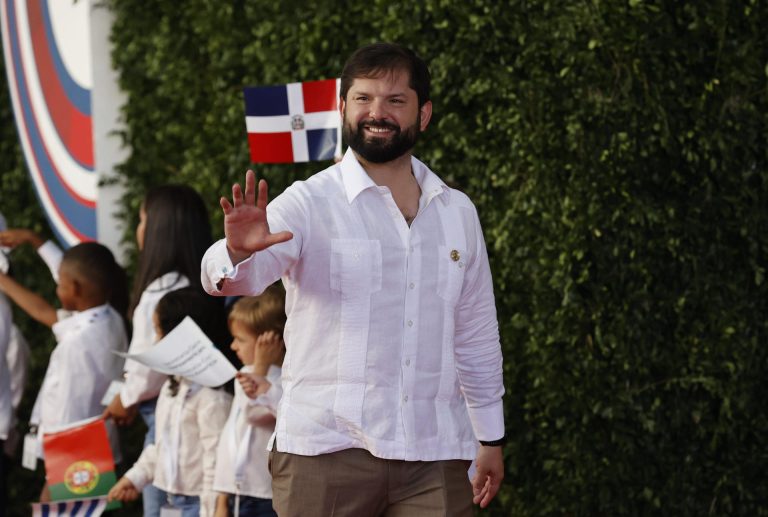26 de marzo 2023

Children of Exile: The Births “Sowing Hope” in the Camp of Nicaraguan Farmers

PUBLICIDAD 1M
PUBLICIDAD 4D
PUBLICIDAD 5D
“It is not acceptable for us to remain silent before the family dictatorship of Ortega and Murillo in Nicaragua,” said the president

Gabriel Boric, President of Chile. Photo: EFE | Confidencial
President Gabriel Boric of Chile denounced the actions of the Nicaraguan “dictatorship” headed by Daniel Ortega and his wife and vice president Rosario Murillo at the XXVIII Ibero-American Summit taking place March 24-25 in Santo Domingo, Dominican Republic.
“It is not acceptable for us to remain silent before the family dictatorship of Ortega and Murillo in Nicaragua,” said the president.
During his intervention, Boric referred to Ortega’s act of stripping dozens of his political opponents of their Nicaraguan nationality, stating: “Apparently, he doesn’t know that the homeland is something you carry in your soul and your blood, and it can’t be taken away by decree.”
The Chilean president mentioned the particular cases of writers Sergio Ramirez and Gioconda Belli, plus the historic former guerrilla leader Dora Maria Tellez, all now stripped of their nationality by the regime.
“Today we see risks and threats in the entire world, looming over the democracy that has cost us so much. We must respond to them with more democracy, not less,” he insisted.
Boric also referred to some of the region’s common themes, such as migration, narcotrafficking, the environment, gender equality, and the regulation of global financial capitalism.
“Along with these enormous challenges, we must address together the urgent needs our people suffer,” among them security and the phenomenon of migration in the region. He reminded those present of the upcoming Plenary Meeting of the XX South American Conference on Migration, to be held next October in Santiago, Chile.
The question of migration “constitutes perhaps one of the greatest regional challenges.” As a result, he advocated, it must be addressed by joint action.
“We must be capable, among all of us, of managing a safe, regular, orderly and humane migration that safeguards the rights of those who emigrate, as well as the rights and security of the countries that take them in.”
Boric further called for countries to “protect and strengthen” the Ibero-American community, stressing the need for solidarity among its members.
*This article was originally published in Spanish in Confidencial and translated by Havana Times.
PUBLICIDAD 3M
Agencia de noticias internacional con sede en Madrid, España. Fundada en Burgos durante la guerra civil española en enero de 1939.
PUBLICIDAD 3D